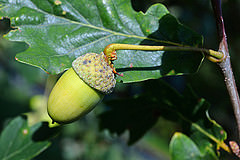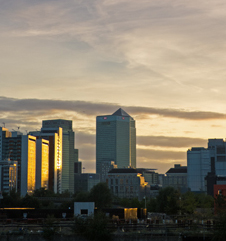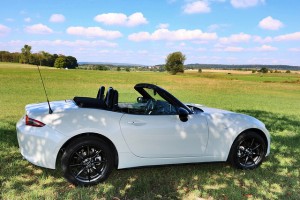Most of us now live in cities or urban environments because, since around 2008, the human species has transformed itself from Homo sapiens ruralensis into Homo sapiens urbanensis. The human population has moved the centre of its distribution from the rural setting to the urban jungle and our everyday links with the natural world are therefore, arguably, weakening. The Oxford Junior Dictionary has dispensed with the word ‘acorn’ (albeit to much horrified adult comment) on the grounds that words such as acorn, lark and minnow have much less relevance to young people today than terms such as blog, download and broadband.  Fears for the health, welfare and safety of our children in urban settings combine with formal Health & Safety regulations to ensure that the favoured areas for play today are constructed areas of climbing frames, spinning poles and scrambling nets, sometimes outdoor, sometimes indoors in great warehouses, rather than the trees, bush-dens, and yes, even ponds and streams which were playgrounds for those of us who are now of a certain age.
Fears for the health, welfare and safety of our children in urban settings combine with formal Health & Safety regulations to ensure that the favoured areas for play today are constructed areas of climbing frames, spinning poles and scrambling nets, sometimes outdoor, sometimes indoors in great warehouses, rather than the trees, bush-dens, and yes, even ponds and streams which were playgrounds for those of us who are now of a certain age.
Successive governments of all hues, not just in the UK but worldwide, have with a few notable exceptions tended to offer little more than lip-service to environmental issues and pursued the lightest-touch form of executive environmental action because they believe that what people really care about now is physical and financial security rather than butterflies, birds and wild flowers. They are almost certainly correct, at least at one level, but this attitude is based on the belief that Nature is an optional extra to be given consideration only when the important things in life have been sorted out.  In other words, Nature is no longer believed to be important to the investment-fund manager in Canary Wharf or the tech-startup team in Hoxton or the hospital cleaner living in Manchester’s Moss Side because they all live, like most of us, in the urban environment. There is one industry, however, and arguably one of the largest contributors to the UK economy, which gives the lie to this belief and shows just how important Nature is even to the most hardened urbanite, though they themselves may not be aware of any positive feelings towards Nature.
In other words, Nature is no longer believed to be important to the investment-fund manager in Canary Wharf or the tech-startup team in Hoxton or the hospital cleaner living in Manchester’s Moss Side because they all live, like most of us, in the urban environment. There is one industry, however, and arguably one of the largest contributors to the UK economy, which gives the lie to this belief and shows just how important Nature is even to the most hardened urbanite, though they themselves may not be aware of any positive feelings towards Nature.
To demonstrate this, I want you to do something for me – and no, I don’t want you to go outside and hug a tree. I just want you to sit and watch TV. A commercial channel. When a commercial break arrives, watch each advert and try to spot how many ‘natural’ references there are in each advert. It may be a floral pattern on wallpaper, or a flower-bed, or a mountain, or a zebra, or a flower in a vase, or a bird flying, or a wild landscape. Now consider what relevance that natural reference has to the product being advertised in each case. I am fairly confident that an astonishingly high proportion of the adverts you have just watched will contain one or more natural references. I am also reasonably confident that many of those references will be of little direct relevance to the product being marketed.
Now why should both these facts be? Advertising has no interest in Nature per se. It is a hard-headed industry in the business of making money for its clients. Ultimately, however, advertising is about making us feel good and therefore seeking to associate the product with a sense of well-being. If something makes us feel good, we are more likely to want it. This hard-headed industry knows precisely what, deep down, makes us happy.  It is abundantly clear that a young futures trader who lives and works in Canary Wharf is deeply attracted to the idea of driving the latest high-performance car through wild rugged landscapes, through a scenery of lush green alpine meadows, along wild coastlines – in short, through Nature. This is clearly the case because this is what such adverts consist of, and the advertising industry understands the mind of our young futures trader better than anyone. Take almost any other product, even the most unlikely of products – the insurance market, or should I say the insurance meerkat? Meerkat??
It is abundantly clear that a young futures trader who lives and works in Canary Wharf is deeply attracted to the idea of driving the latest high-performance car through wild rugged landscapes, through a scenery of lush green alpine meadows, along wild coastlines – in short, through Nature. This is clearly the case because this is what such adverts consist of, and the advertising industry understands the mind of our young futures trader better than anyone. Take almost any other product, even the most unlikely of products – the insurance market, or should I say the insurance meerkat? Meerkat??  What’s that got to do with insurance…?? It doesn’t have anything to do with insurance of course, but it has everything to do with the successful marketing of insurance.
What’s that got to do with insurance…?? It doesn’t have anything to do with insurance of course, but it has everything to do with the successful marketing of insurance.
As far as I’m aware there’s been very little published in this country about the obvious underlying attraction of Nature and the use of this by the advertising industry, but there’s an interesting pilot study by Rainer Brämer in German which looks at the phenomenon in Germany, and there’s also a German blog by Martin Rasper which makes a number of valuable and enlightening points. But does a viscerally, almost subconsciously positive, response to Nature mean that we actually want to engage with natural things, that we want more Nature?
Again, the advertising industry gives us an interesting insight. Where do the captains of this hard-headed industry go when they wish to relax, or when they have made their millions and retire? Very often they head for the beautiful countryside or to the un-spoiled places of the World, as do so many other captains of industry. There is probably a direct relationship between how rich someone is and the amount of time they spend in surroundings which are full of natural references. Sometimes these settings can be quite literally manicured to within an inch of their lives (some Japanese shogunate gardens still have lawns and trees trimmed with nail scissors) because many successful people are also various degrees of control obsessive, but even so their evident need for natural contact is still strong. Edward O. Wilson wrote extensively about this strong link, which he called ‘biophilia’, but there is a tendency among decision-makers, policy makers and general movers and shakers to regard this concept as too nebulous to quantify and turn into something economically meaningful. Advertising does precisely this. It calculates the economic benefit to the client of using specific triggers within an advert.  As a measure of what Nature means to us in hard monetary terms, advertising is something of a revelation. “Add a giraffe. Your sales will increase by 35%”. This is a powerful argument because it applies across the whole spectrum of society.
As a measure of what Nature means to us in hard monetary terms, advertising is something of a revelation. “Add a giraffe. Your sales will increase by 35%”. This is a powerful argument because it applies across the whole spectrum of society.
There is something of a downside to this, however – or perhaps at least an unexplored issue. When advertisements use actors they must be paid. Nature has no voice and cannot ask to be paid. In effect, one of the most powerful tools of the advertising industry can be used for free by anyone for any purpose. There are occasions where the use of Nature in order to sell a product ultimately may have a negative effect on Nature itself. It is rather like other industries 100 years ago which were able to extract water from river systems, use it for their industrial process and then pump the waste water back into the river with no thought or responsibility for the impact on the river system. That system has now been replaced by the ‘polluter pays’ principle, and industry has adapted accordingly to the benefit of everyone.
There is perhaps therefore an argument for the advertising industry to have its own version of this principle, whereby a ‘natural actor’ used in an advertisement ‘receives payment’ for its contribution to the creation of the advert. This could be achieved using the same type of mechanism as operated by the Landfill Tax Credit Scheme. Each advert and each broadcast/publication of an advert could pay a small supplement to a Natural Advertising Tax (NATural Ad) Scheme which would provide funds for projects which enhanced the natural environment of local communities and/or perhaps gave opportunities for those living in nature-deprived urban settings to get out and enjoy contact with the natural world. Given the pervasive nature of Nature, I suspect that the default position for all adverts would be that they should pay into the NATural Ad Scheme and it would be up to the advertising agency to demonstrate that a particular advert did not fall within the scheme. If the supplement were sufficiently small, such arguments would be largely pointless in any case.
Given what we receive from Nature, whether consciously or subconsciously, and its enormous contribution to the mass of advertising by which we are all bombarded every day, and the huge contribution that advertising makes to the national economy, a scheme such as NATural Ad would seem both reasonable and a small price to pay. Whether or not such a scheme were ever to be instigated, politicians, decisions, planners, policy makers and financiers would do well to look to the advertising industry for a real sense of how important Nature is to all of us. Advertising is here to stay, but just imagine advertising stripped of all references to Nature – what a bleak and rather soul-less world that would be…
Picture credits
Acorn: free photos – flickr creative commons licence
Canary Wharf: Richard Lindsay
Mazda MX-5 ND: Yarin Asanth – flickr creative commons licence
Meerkat: Van Corey – flickr creative commons licence
Giraffe: Peter Miller – flickr creative commons licence
Information sources
- Oxford Junior Dictionary decision to drop ‘nature-related’ words: http://www.theguardian.com/books/2015/jan/13/oxford-junior-dictionary-replacement-natural-words
- UK Advertising Industry: http://www.statista.com/topics/1747/advertising-in-the-united-kingdom/
and http://www.theworkfoundation.com/downloadpublication/report/295_the%20contribution%20of%20advertising%20to%20the%20uk%20economy%20311011.pdf - Advertising contribution to the UK economy: http://www.thinkbox.tv/tv-at-a-glance/advertising-pays-how-advertising-fuels-the-uk-economy/
- Nature and advertising study by Rainer Brämer: http://www.wanderforschung.de/files/natwerb1241108152.pdf
- Nature and advertising blog by Martin Rasper: http://www.utopia.de/magazin/nature-sells-wie-puma-jaguar-co-die-werbung-beeinflussen
- Edward O. Wilson and Biophilia: https://en.wikipedia.org/wiki/Biophilia_hypothesis

Enlightening article. A real revelation. Like John Berger’s ‘Ways of Seeing’ it opens your eyes for the first time to the obvious tools of advertising which most of us mere mortals are brainwashed easily by without really thinking . . .
Yes indeed, but once you start thinking about how Nature is used in advertising it quickly becomes clear that Nature has two enormous benefits from the industry’s point of view – it is very effective and it is very cheap because it has no voice… (and thank you – I will look at Berger…)